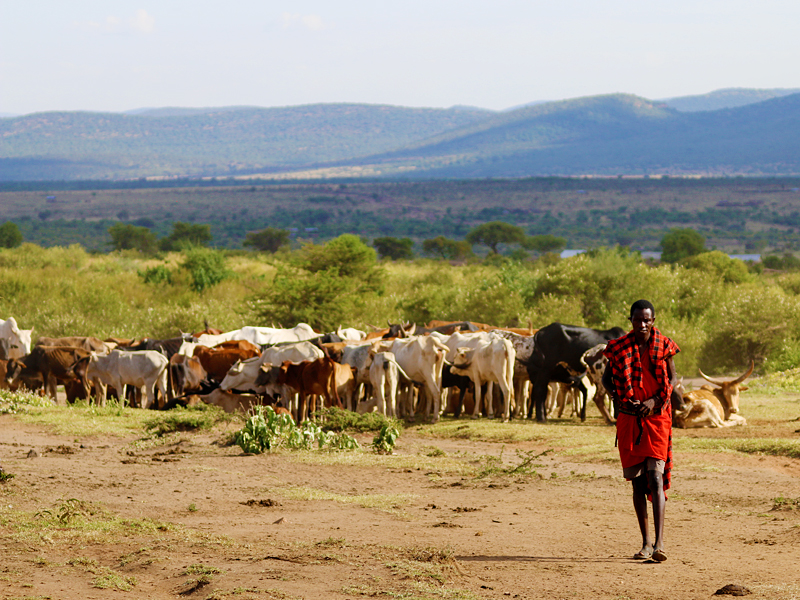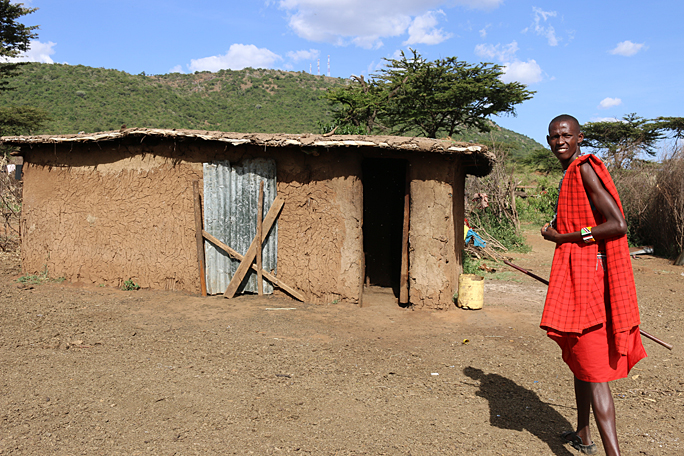What are the ethics of possibly exploiting human beings while traveling when indigenous or native people are more exploited where they live rather than benefiting from tourism? I recently read about the travel experience of one person that caused me to think about this topic.
The Ethics of Possibly Exploiting Human Beings While Traveling

One of the numerous reasons as to why people travel is to experience how other people live differently than them, which can be quite interesting: what types of housing do they live in, what kinds of foods and beverages do they eat and drink, from what occupations do they earn a living, what is the topography of their environment, what are considered typical weather conditions, and how do they socialize with each other are only six of the many interesting ways that people live differently from other people…
…but what if part of their way of life is comprised of mutilation, starvation, severe poverty, unsanitary conditions, or violence?
Human zoos actually existed during the 1800s and in the early part of the twentieth century. In those environments, indigenous people were displayed in pens and enclosures so that visitors can curiously gawk at them. Those human zoos served little to no purpose whatsoever other than solely for entertainment.
Travelers could unknowingly be visiting human zoos that are not nearly as obvious because they are typically located where the people have lived for generations. The conundrum of the influx of tourist dollars to help fund deficiencies can significantly taint what might otherwise be an authentic experience of the glimpse into everyday life in a traditional village.
Mutilation
Visiting some areas of Africa can result in seeing people who have been significantly mutilated. They can sport multiple piercings; their skin can be permanently covered with paint, dyes, and other pigments and could be stretched out to accommodate jewelry and other adornments; and they may even endure rituals that might otherwise be considered denigrating and disrespectful…
…but where is the line drawn as to what is tourism and what is exploitation? In one culture in Africa, for example, women wear what are known as lip discs which stretch their lower lips to unimaginable sizes. What may seem to be torture to you or I may be considered a part of everyday life for them. Are they proud of this aspect of their culture — or do they wish that it would end?
Then again, if you are male and Jewish, you likely have been circumcised with a procedure called brit milah as performed by a mohel eight days after you were born. Some people might think that procedure is cruel to male babies, while other people would claim that this is not a good comparison — but either way, tourists do not clamor to witness this ritual.
Exploitation Reversed
One can also argue that the people themselves are exploiting the outsiders in ways that would unfairly enrich them — such as by charging visitors usuriously expensive fees and prices, offering packages and bundles when the customer only wants or needs one item, or otherwise subjecting tourists to experiences that they do not necessarily want.
Some people might call this commercialization. Other people might deem this practice of converting traditional customs into “tourist traps” as ruining a legitimate culture.
My Experience as an Example

I went on safari in Kenya back in 2015. I purchased a package at the last minute, with the intent on seeing animals roam freely in their habitats. I was not disappointed at all, as that safari was an amazing experience…
…but part of the package included a visit to a village that was inhabited by the Maasai people of Kenya. They were most hospitable in many ways — whether:
- Inviting visitors into their homes constructed out of materials which include cow manure
- Demonstrating their knowledge and skills of how to start a fire without the use of matches or lighters; or
- Simply using a traditional dance for welcoming their guests.
Even though they lived a simple life which could be equated to poverty level in first world countries, they also had technology such as cellular telephones.
I ultimately enjoyed my visit, as they were gracious hosts — but was my visit exploiting them? Were they exploiting us? Does it matter if both sides seemed to be happy with the outcome?

I was one of the first people from the United States to ever visit some of the villages in Côte d’Ivoire when I was there years ago. The native Boulé people in Bouaké lived a very simple life as well. One night, they hosted us for dinner at a campfire and welcomed us with traditional dances. One of the foods that were prepared was a pancake of sorts called a gnonmi that was grounded with a large wooden mortar — as shown in the photograph above — before it was poured into a clay bowl with oil in several smaller indentations for several individual gnonmis.
I was so impressed by how each gnonmi turned out that I purchased one of the clay bowls for myself. I also learned for the first time how incredible corn tastes when the entire ear — husk and all — is thrown straight into the fire. The husk burned; but the corn was sweet and perfectly cooked. I still prepare corn this way to this day.

On a different note, some people would consider eating lutefisk in Norway to be disgusting and probably cruel. Pardon my grammar; but I actually kinda liked it when I dined on it there last year.
Final Boarding Call
By no means am I saying that the way I live is superior to the way anyone else lives. I believe that we can all learn from each other and how we all live to improve how to live on this ever-shrinking planet.
A link to the report that I read which prompted me to write this article was not included because the photographs in it seemed to be rather graphic — and some people might find the report offensive.
I guess the question is what customs are acceptable when visiting a foreign land which undergoes rituals that some people might find barbaric…
…but then again — unless some research is done in advance — people who visit a foreign land or indigenous village might not even know about some of the rituals and customs of the people who are native to that area.
The ultimate experience is to appreciate aspects of the culture without anyone being exploited — and that all sides benefit from that experience. Does a fine line exist as to when a visit becomes like being at a human zoo?
All photographs ©1984, ©2015, and ©2024 by Brian Cohen.

